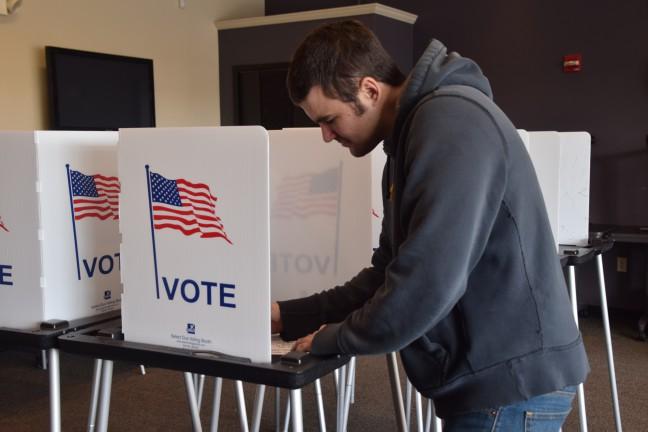Following the Supreme Court’s decision not to hear Wisconsin’s voter ID law, thereby upholding it, the American Civil Liberties Union of Wisconsin aims to expand the list of identification acceptable on Election Day.
Chris Ahmuty, executive director of ACLU of Wisconsin, said ACLU is focusing on two forms of ID in particular: two-year technical college student IDs and veteran IDs.
Under the current law, student IDs from four year universities are acceptable while student IDs from two year colleges are not, even though it takes similar documentation to obtain both, Ahmuty said.
This means that a student from MATC could not use his student ID, while a student from UW could. Since both IDs represent essentially same thing, Ahmuty said it makes sense to expand the list of acceptable voter IDs to include those from two-year technical colleges.
Conservative politicians, who tend to support requiring photo identification to vote, lauded the Supreme Court’s decision not to hear the voter ID case. Gov. Scott Walker called the law “common sense.”
“This is great news for Wisconsin voters,” Walker said in a statement. “As we’ve said, this is a common sense reform that protects the integrity of our voting process, making it easy to vote and hard to cheat.”
Currently, a federal appeals ruling refusing to block the statute is in place. Additionally, a federal district court is reviewing part of the case. The law was not implemented for the election April 7, but will be in place for future elections.
ACLU hopes the state will also accept veteran IDs, Ahmuty said. Currently, U.S. military IDs for serviceman on active duty are acceptable forms of voter IDs while veteran IDs are not. Ahumty said this seems “irrational” since both have contributed service to the United States and because both IDs require nearly identical documentation and security to obtain.
“Here are people who have served their country, but they may be older, and because of their age their veterans ID may be the only one they have,” Ahmuty said. “There’s also a significant group of people who can vote even though they don’t have a mortgage or a lease; they’re essentially homeless, but they’re also veterans.”
Ahmuty said expanding the list of acceptable voter IDs would “take a while” and he does not expect the list of acceptable IDs to change right away. However, he said he is optimistic about the ACLU’s chances in the next legislative session.
In September, an appellate panel removed a block on the voter ID law. This was after the law had been on hold since 2012. The Supreme Court then called an emergency ruling to suspend voter ID, under the pretext that polling places would not have enough time to implement the changes before the November general elections.
Assembly Speaker Robin Vos said in a statement the law will help protect against voter fraud in Wisconsin’s elections.
“The common sense law will help ensure honest and fair elections,” Vos said.

















